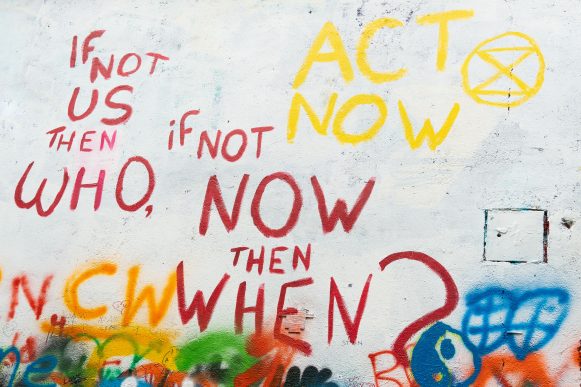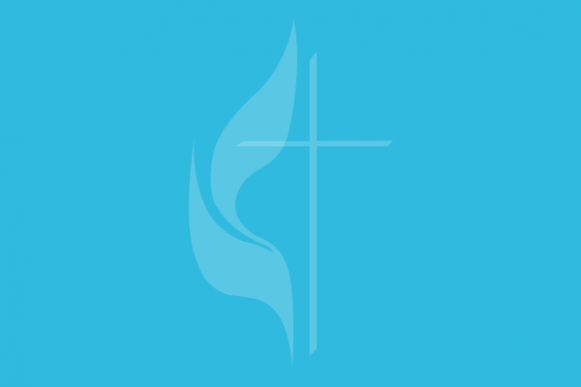Welcome to the first edition of a new series from The Relay delving into the Journey of Hope plan. Each month, we will feature a story that dives deeper into the plan and helps guide you on your journey.
Racism hurts all of us. Not just black people. Not just Hispanic and Latinx people. Not just Asian Americans and Pacific Islanders. Not just Native American people. And yes, racism hurts white people too. Racism harms us all because at the core, of this pervasive, resilient, systemic evil, lies its root – SIN. Sin is within us, every system we navigate, every place we go, every person we encounter, and it affects how we see God and one another. Sin mars the ‘imago Dei’ – the image of God as St. Thomas Aquinas first coined the phrase – in each of us. Racism, to be specific, stops us from seeing ourselves and each other as fully human. It forces us to see the ‘other’ as less than so we can see ourselves as greater than, better than.
The Journey of Hope plan was presented in October 2020 to GNJ in the wake of George Floyd’s murder – demonstrating the effects of the pandemic of 1619, racism. The plan was approved with the goal being that “GNJ will dismantle systems and structures within the church that perpetuate racism” (JOH plan, p. 2). This is a colossal undertaking! After last fall’s vote and approval of the plan, I thought, “Okay. Now, how are we going to do this?” Many of us have asked this question. The reality, though, lies ahead of this question: it took 500 years for racism to be baked into the systems and DNA of our nation; it will not take 30 minutes, three months or even two years for us to dismantle racism. The Journey of Hope plan is just that – a written plan. Imagine a pile of bones – much like the valley of dry bones in Ezekiel 37. Some of the pieces of the Journey of Hope plan – “bones” or tasks – are already underway: apportioning shared ministries and billables to congregations in low-income communities, permanently forbearing collecting on billable debt, examining ways to strengthen ethnic congregations, and annual review of all reports and legislation ahead of annual conference for implicit bias review.
However, just as the presence of the bones in Ezekiel 37 did not immediately create a human being with new life, executing the work and tasks of the Journey of Hope plan will not immediately dismantle racism. Sin is resilient. Evil is prevalent. We engage this work remembering our baptismal identity and vow: “We renounce the spiritual forces of wickedness, reject the evil powers of this world, and repent of sin. We accept the power and freedom God gives us to resist evil, injustice and oppression in whatever forms they present themselves. We confess Jesus Christ as our Savior, put our whole trust in God’s grace, and promise to serve God as our Lord, in union with the Church, which Christ has opened to people of all ages, nations, and races. Another “bone” of the Journey of Hope plan is for congregations to create their own Journey of Hope plans to dismantle racism – in their respective ministry contexts and communities – starting where they are, starting with whom they are, and remembering Whose they are. Trainers and facilitators will be recruited and trained by consultant, Fearless Dialogues to assist and support local congregations in creating their own Journey of Hope plans. Trainers and facilitators will be supported and coached by identified Journey of Hope coaches.
I hear you asking: How will all this work? Where is the “flesh” and “breath” of these “bones”?
THE “FLESH”: FEARLESS DIALOGUES
Last year, the Journey of Hope team, integral in crafting the Journey of Hope legislation, came together to engage the work of locating a consultant to guide and assist GNJ in living into our commitment to anti-racism work. GNJ underwent a nationwide search with the Journey of Hope team discerning which organizations were best equipped to help us do our work. Fifteen organizations were selected, and from this gifted and skilled group, Fearless Dialogues rose to the top. One amendment to the Journey of Hope legislation named the fact that this work is intersectional in nature. Fearless Dialogues was found to be the organization to help us do the work of Journey of Hope engaging its intersectionality – a term coined by Dr. Kimberle Crenshaw in 1989 to address how identities of race, class and gender intersect with one another. Fearless Dialogues is an organization comprised of faith-filled, gifted, brilliant leaders who have committed to helping many groups and denominations undo racism through seeing the ‘other,’ hearing the ‘other,’ and changing how we approach and engage the ‘other.’ The organization was founded by Rev. Dr. Greg Ellison II who, along with his team, is passionate about seeing the image of God redeemed in the self, the other, and whole communities to the glory of God. Rev. Dr. Ellison, in his book, Fearless Dialogues: A New Movement for Justice, talks about how the vision and mission of the organization and its praxis originated from Ellison’s own upbringing, lessons learned, and the wisdom of elders. Embodying and a desire and call to live into Great Commandment (“Love the Lord your God with all your heart, soul, mind, and strength and your neighbor as yourself.”), Fearless Dialogues strives to “create unique spaces for hard, heartfelt conversations” (www.fearlessdialogues.com) with participants – who may begin as “unlikely partners” – leave trainings and dialogue spaces having seen one another fully and heard one another fully committed to changing ways of thinking, being and doing in themselves to fully see and hear God in another.
I hear you asking another question: How are Journey of Hope and Fearless Dialogues connected?
THE CONNECTION: JOURNEY OF HOPE & FEARLESS DIALOGUES
God tells the prophet, Ezekiel (chapter 37), once tendons, flesh and skin had appeared on the skeleton in the Valley of Dry Bones, to “prophesy to the breath.” In other words, God tells Ezekiel to speak life into the lifeless, dry being. Fearless Dialogues, who is partnering with GNJ for two years, will provide us with the language, training, and knowledge to speak Spirit language and life into our ways of being, processes, policies, and systems that have become dry due to racism…that have robbed us of seeing and hearing the image of God in one another, that have equipped us to do harm, do good for a select few, and fall out of love with God. GNJ officially began its inaugural work with Fearless Dialogues on September 20, 2021, with 13 executive conference staff beginning training as Journey of Hope coaches. Training will continue in tandem with people being trained as Journey of Hope trainers and facilitators to assist and guide congregations in developing their own Journey of Hope plans toward anti-racism work in context in their communities. Trained Journey of Hope coaches will be available to support and coach trainers and facilitators as they guide anti-racism work in local congregations and communities. It is the incarnational reality of anti-racism work that makes us all nervous though – if we are honest with ourselves and one another. Plans on paper are neat and tidy. Likewise, trainings and workshops to apply new knowledge and processes are neat and tidy. It is when plans and trainings intersect that messiness happens and questions come. How is doing a particular task in the Journey of Hope harming us or doing us good? When do we engage a particular task ahead of Fearless Dialogues training? What staff and conference processes and policies do we need to change to see and hear all people in our system? How will developing a Journey of Hope plan look for our congregation and community? Why do we need to do anti-racism work at all as people of God?
THE WORK OF DISCIPLESHIP: OPENING GRAVES
When three of my four daughters were baptized eight years ago in Maryland, much of our village of people showed up to witness it – about 70 people. These people were not just part of our village but, along with the congregation I served at the time as associate pastor, part of the church who vowed to help us guide our daughters “in the way that leads to eternal life” until they could claim the Christian faith for themselves. At their baptism, while remembering our own, we renounced sin, rejected wickedness, accepted the freedom and power God gives to reject evil, injustice and oppression in whatever forms they presented themselves on our daughters’ behalf until they could do so themselves. We vowed to nurture them in Christ’s holy church and God’s grace by living out Jesus’ teaching and example in our own lives. The work of undoing sin in ourselves, in others and in our world is grave-opening work that first begins with us remembering who we are: children of God. Since racism is sin, the work of anti-racism is tied to our baptismal covenant, which God calls us to live into every day. God tells Ezekiel that he is not alone saying, “I am going to open your graves and bring you up from them, my people and lead you into the land of Israel” (Ezekiel 37:12). Living into the Journey of Hope plan will not be a perfect endeavor. Partnering with Fearless Dialogues will not be a perfect endeavor. But, praise God! God did not call the Church to be perfect but to be faithful to our call as disciples giving glory to God and nurturing others in Christ’s holy Church. Committing to anti-racism work – rejecting evil, injustice and oppression in whatever forms them present themselves – is grave opening work! Being a disciple is grave opening work! Making disciples is grave opening work! Each day we wake up as we engage the Journey of Hope, let us remember it is the God of Eternal Hope who goes with us, carries us, has freed us, empowers us, and brings us up from our graves.
For more information on attending Fearless Dialogues training to become a Journey of Hope trainer/facilitator, please contact Rev. Enger Muteteke at emuteteke@gnjumc.org.


